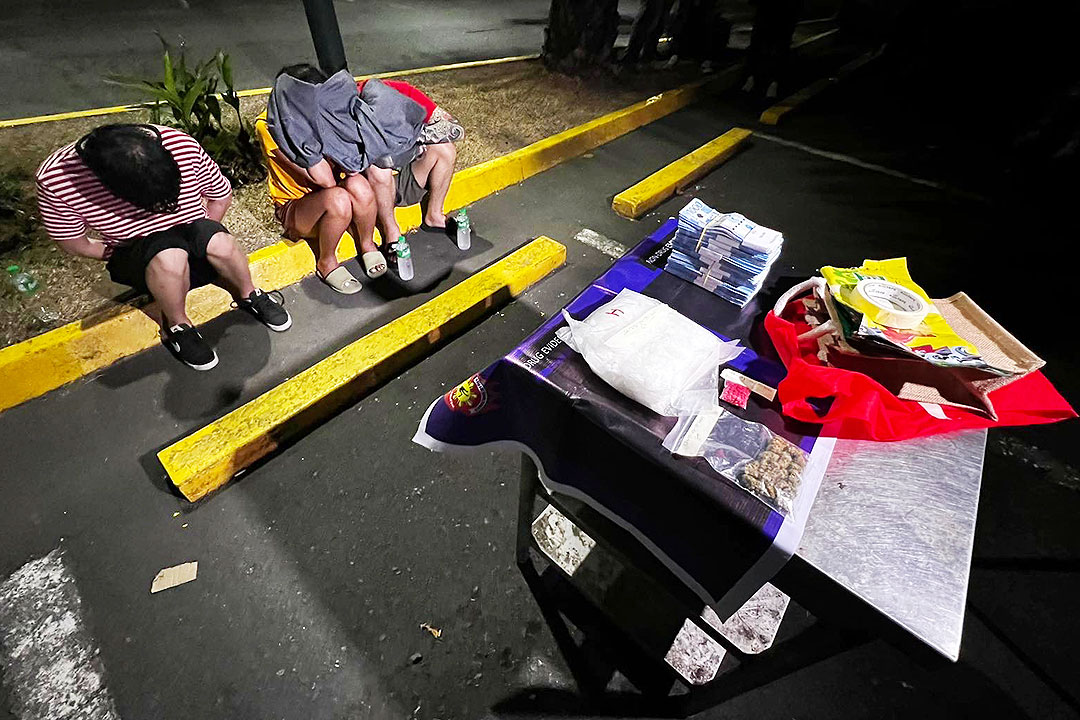Philippines says ICC undermining sovereignty with drug war probe

THE INTERNATIONAL Criminal Court (ICC) is undermining the Philippine government’s sovereignty by continuing its investigation of ex-President Rodrigo R. Duterte’s deadly war on drugs, the Department of Justice (DoJ) said on Wednesday
“The ICC’s rejection of our appeal is based on a flawed interpretation of its own jurisdiction,” it said in a statement. “It fails to acknowledge that the Philippines has a functioning and capable domestic legal system that is fully capable of investigating and prosecuting crimes within its jurisdiction.”
The ICC Appeals Chamber on Tuesday rejected a state plea in a 3-2 vote to suspend the probe, saying the ICC-Pre-Trial Chamber had correctly allowed its prosecutor to do its mandate.
President Ferdinand R. Marcos, Jr. should support accountability for grave crimes in the Philippines and uphold the country’s obligation under the ICC’s founding Rome Statute to cooperate with the court, Human Rights Watch said.
“The ICC Appeals Chamber decision rejects Philippine government claims that the ICC should not investigate in the country,” Bryony Lau, deputy Asia director at Human Rights Watch, said in a statement. “President Marcos should back up his stated commitment to human rights by cooperating with the ICC prosecutor’s inquiry.”
In March, the United Nations-backed tribunal based in the Hague denied the government’s request to stop the ICC Pre-Trial chamber from reopening its investigation of Mr. Duterte’s anti-illegal drug campaign.
The Justice department said the dissenting opinions of the two judges cast doubt on the chamber’s ruling.
“These dissenting Justices rightly recognized the Philippines’ commitment to uphold the rule of law and maintain an independent and effective legal system.”
Appeals Chamber Presiding Judge Marc Perrin de Brichambaut and Judge Gocha Lordkipanidze, who dissented, said the pre-trial chamber has no jurisdiction over the Philippines after it withdrew from the ICC in 2018.
DoJ said the ICC should abide by the principle of complementarity, a concept of international law that ensures a state’s national authorities take precedence in handling criminal cases.
“We urge the ICC to reconsider its decision and recognize the Philippines’ unwavering commitment to the rule of law and the pursuit of justice,” the agency said.
‘HUMAN RIGHTS OF ALL’
Meanwhile, the Commission on Human Rights (CHR) said the government of President Ferdinand R. Marcos, Jr. should view the decision as an opportunity to show its commitment to punish human rights violators.
“From the lens of justice, CHR acknowledges the continuation of the investigation as part of the due process meant to uphold the rights of victims, as well as the accused, through a fair and impartial procedure with the end view of exacting truth and, later on, accountability from the perpetrators if and when guilt is established,” it said in a statement.
“CHR is willing, ready, and able to assist the government so it may better comply with its obligations to respect, protect and fulfill the human rights of all.”
The agency earlier said the Duterte government had encouraged a culture of impunity by hindering independent inquiries and failing to prosecute erring cops.
Last year, Mr. Marcos Jr. said the Philippines would not rejoin the ICC, which political experts said is meant to protect his predecessor from prosecution.
In a statement on Tuesday night, the Office of the Solicitor General said it was disappointed with the ruling, but said it would continue to focus on domestic investigations of the previous government’s anti-illegal drug campaign.
Solicitor General Menardo I. Guevarra told reporters in a Viber message the ICC ruling had a “gaping hole” after failing to rule on the issue of jurisdiction.
“This unresolved issue of jurisdiction will be a powerful argument for any person who may be investigated or charged by the ICC,” he added.
The ICC Pre-Trial Chamber in January reopened its probe of Mr. Duterte’s campaign against illegal drugs, saying it was not satisfied with government efforts to probe human rights abuses.
It was also set to probe vigilante-style killings in Davao City when the former president was still its vice mayor and mayor.
The tribunal, which tries people charged with crimes against humanity, genocide, war crimes and aggression, suspended its probe of the deadly drug war in 2021 upon the Philippine government’s request.
ICC Prosecutor Karim Ahmad A. Khan earlier said the Philippines had not raised new arguments to justify halting the probe.
The Philippines has accepted 200 recommendations from the United Nations Human Rights Council, including investigating extralegal killings and protecting journalists and activists.
The government estimates that at least 6,117 suspected drug dealers were killed in police operations. Human rights groups say as many as 30,000 suspects died.
“Our justice system stands ready to ensure a fair and impartial investigation, prosecution and appropriate punishment for any proven crimes,” the DoJ said. — John Victor D. Ordoñez



